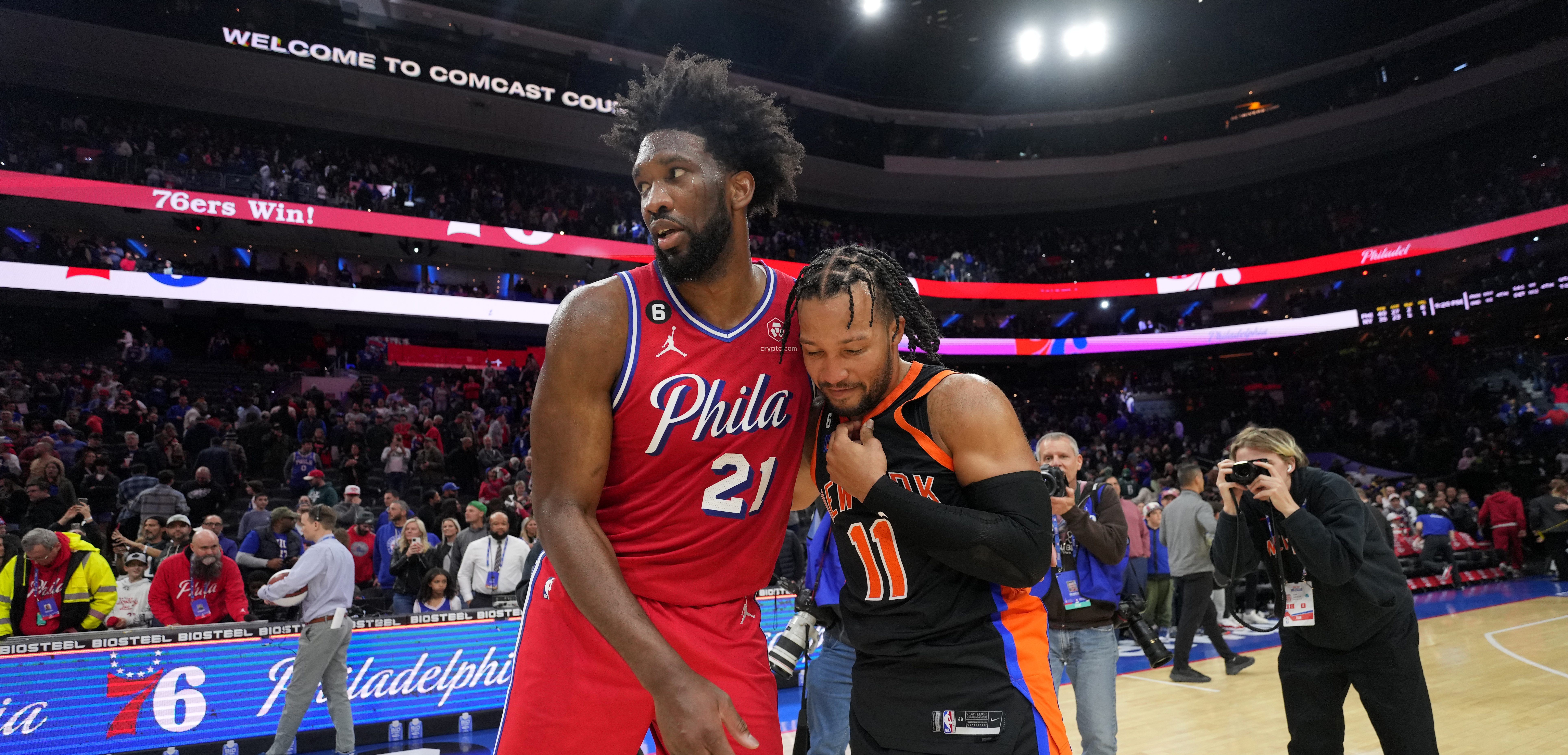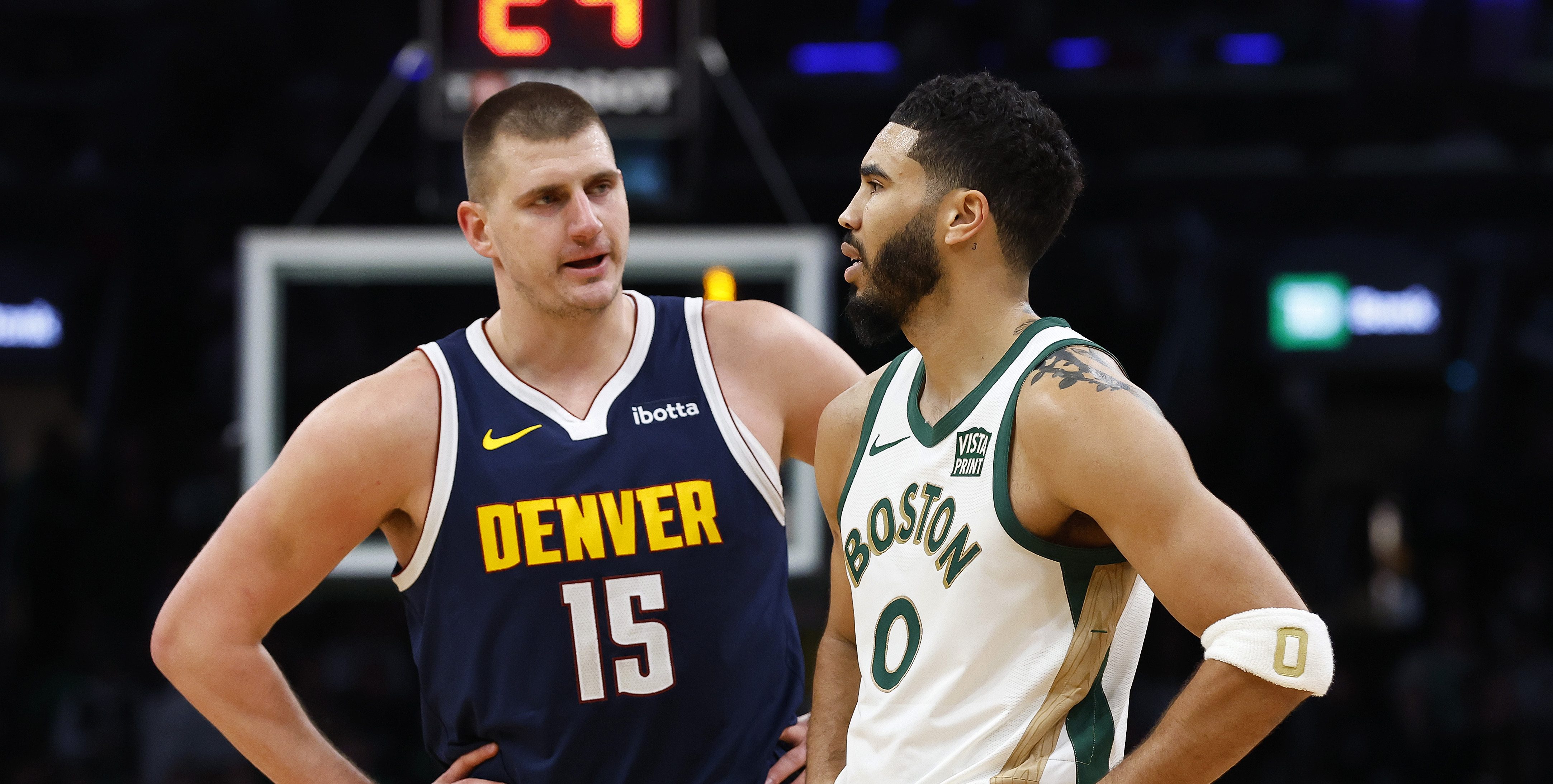
May 27, 2011.
Behind 22-year-old Derrick Rose, who three weeks earlier had been named the league's youngest MVP, the top-seeded Bulls had pushed their Game 5 lead against the Miami Heat to 12 with 3:35 to play. Facing elimination, Tom Thibodeau's group, which had allowed the East's most efficient offense just 64 points in the game's first 44 minutes, looked poised to send the series back to Miami with some momentum on their side for the first time since a Game 1 victory.
Then LeBron James happened. Again.
James split a pair of free throws. 76-65. Then a transition pass to Dwyane Wade for two. 77-69. Then a 3-pointer over the outstretched arms of Rose. 77-72. Then a dish to Wade for a 3-pointer and foul. 79-76. Then a left wing triple — his third of the night — off a Udonis Haslem screen. 79-79. Then a pull-up 18-footer from the top of the key. 81-79, Heat lead with 25 seconds remaining.
In a matter of seven possessions that spanned a little more than three minutes, James carved up the league's top defense, accounting for 15 of Miami's 17 points (nine points and assists on six Wade points) to give the Heat their first lead since the middle of the first quarter. James then capped off his memorable performance — and cemented himself as Chicago's public enemy No. 1 — by getting a hand on a potential game-tying Rose 3-point attempt at the buzzer, sending him and "The Heatles" to their first of what would become four straight NBA Finals appearances — two of which they would win.
In a vacuum, James' performance that night doesn't stand out historically. Though he hadn't yet won a championship, James' playoff resume already included his historic night in Detroit, a buzzer-beating 3-pointer against Orlando and career postseason averages of 28.0 points, 8.4 rebounds and 7.0 assists. He had two MVPs in his trophy case, seven All-Star appearances, had knocked the Bulls out of the playoffs in five games the year before and, at 26, was entering the prime of his career alongside a star-studded cast. A performance such as that had almost become expected from the game's best player.
But that Game 5 ending was a prime example, a microcosm of sorts, of what four years later has come full-circle for the Bulls: that even when everything is going right, LeBron James is going to be a major obstacle.
NBA
Consider that 2011 Bulls team. Rose was the league's MVP. Thibodeau, the NBA's Coach of the Year by a wide margin, had coached the Bulls to the league's best record and most efficient defense. Joakim Noah was a budding 25-year-old defensive juggernaut. Carlos Boozer, for all the headaches he'd cause in a few years time, averaged 17.5 points on 51-percent shooting and 9.6 rebounds after signing a $76 million deal that offseason with the Bulls, who had missed out on James and Wade earlier. Luol Deng (17.4 ppg) was a year away from two straight All-Star appearances and the backbone of Thibodeau's basketball philosophy. And Kyle Korver had connected on better than 41 percent of his triples as part of the original Bench Mob, which also included Taj Gibson, Omer Asik and Ronnie Brewer.
[NBA PLAYOFFS: Bulls must make most of their second unit]
They found themselves with home-court advantage against a Heat team they had swept in the regular season. Miami touted the star-studded trio of James, Wade and Chris Bosh, who 10 months earlier had joined forces in the wildest offseason in NBA history. But in that playoff series the Heat also started 32-year-old Mike Bibby — who would retire a year later — and Joel Anthony's 2.0 points and 3.5 rebounds per game. The only bench contributions they received came from a 30-year-old Udonis Haslem (who missed most of the season with a torn ligament in his foot), Mike Miller and third-year guard Mario Chalmers.
For the first time since James' arrival to the league in 2003, the Bulls were in position to dethrone his team. They had failed a year earlier as the East's No. 8 seed, falling expectedly in five games to the top-seeded Cavaliers. But the arrival of Thibodeau, combined with Rose's jump to stardom and the aforementioned supporting cast gave cause for hope. Instead, James averaged 25.8 points, 7.8 rebounds, 6.6 assists and added 2.4 steals and 1.8 blocks in more than 45 minutes per game. As he had done in 2010, he made quick work of the Bulls without even needing a Game 6 to do so. Chicago's best chance to knock off James had vanished, just like that.
Until now.
Four years after missing out on their chance to vault past James in the playoffs, a healthy Bulls team touting its most complete and talented roster since Thibodeau arrived finds itself pitted against a shorthanded Cavaliers team expecting their leader to do even more of the heavy lifting. All of a sudden, the Bulls have another "best chance."
With Kevin Love sidelined 4-to-6 months due to a separated shoulder and J.R. Smith suspended for the first two games, the Bulls, much like 2011, seemingly have advantages in every category outside of LeBron and his sidekick — then Wade, now Kyrie Irving. Noah and Pau Gasol vs. Timofey Mozgov and Tristan Thompson? Advantage Bulls. Jimmy Butler vs. Iman Shumpert, and later in the series Smith? Advantage Bulls. The benches? Advantage Bulls, and it's not close. The seasoned veteran Thibodeau with 45 playoff games under his belt vs. first-year NBA head coach David Blatt? Advantage Bulls.
[MORE: Bulls will be at full strength for series with Cavs]
Yet despite all those advantages — similar advantages the Bulls had in 2011 — James has remained the constant the Bulls haven't figured out. Even with an All-Star Butler and a rejuvenated Gasol, in addition to the improved bench and a confident Rose, James gives the Cavaliers both the best player in the series and an intangible upper hand. Noah has been vocal in his desire to get another chance at James in the playoffs, saying earlier this season he'd "love" to meet the Cavaliers in the postseason.
But that desire goes both ways, as James has always ascended his play against the Bulls. In 15 career playoff games against Chicago, James has averaged 27.0 points on 49-percent shooting, 8.0 rebounds and 7.5 assists. When it comes to the playoff version of James, everything else gets thrown out, no matter how substantial the advantage.
Blatt will have to make considerate rotation changes with Love sidelined and Smith out for two games, one of which might be James seeing time at power forward. There's a million different ways the series could go — remember, the Bulls won each of the last two Game 1s against James before losing four straight — but the one given will be a postseason LeBron ready to dominate at a moment's notice, like he did in the final four minutes of Game 5 in 2011. Even when the Bulls outwardly have everything in their favor, there's nothing to account for the performance James could, and likely will, put on. As much as it's Bulls vs. Cavs, it's more so Bulls vs. LeBron. Again.
Four years later, the situation is comparable. Will the results be?


